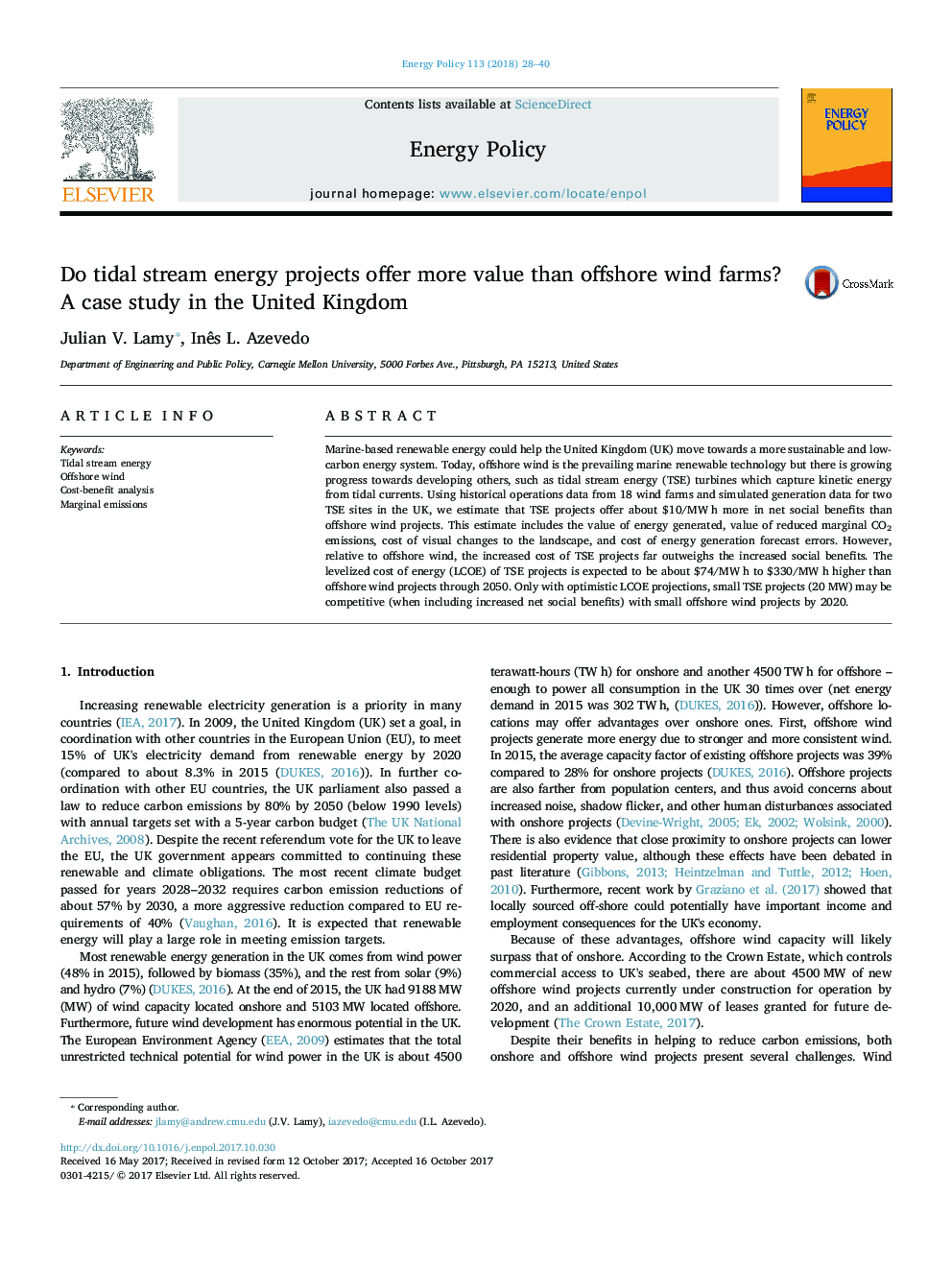| Article ID | Journal | Published Year | Pages | File Type |
|---|---|---|---|---|
| 7397812 | Energy Policy | 2018 | 13 Pages |
Abstract
Marine-based renewable energy could help the United Kingdom (UK) move towards a more sustainable and low-carbon energy system. Today, offshore wind is the prevailing marine renewable technology but there is growing progress towards developing others, such as tidal stream energy (TSE) turbines which capture kinetic energy from tidal currents. Using historical operations data from 18 wind farms and simulated generation data for two TSE sites in the UK, we estimate that TSE projects offer about $10/MWÂ h more in net social benefits than offshore wind projects. This estimate includes the value of energy generated, value of reduced marginal CO2 emissions, cost of visual changes to the landscape, and cost of energy generation forecast errors. However, relative to offshore wind, the increased cost of TSE projects far outweighs the increased social benefits. The levelized cost of energy (LCOE) of TSE projects is expected to be about $74/MWÂ h to $330/MWÂ h higher than offshore wind projects through 2050. Only with optimistic LCOE projections, small TSE projects (20Â MW) may be competitive (when including increased net social benefits) with small offshore wind projects by 2020.
Related Topics
Physical Sciences and Engineering
Energy
Energy Engineering and Power Technology
Authors
Julian V. Lamy, Inês L. Azevedo,
